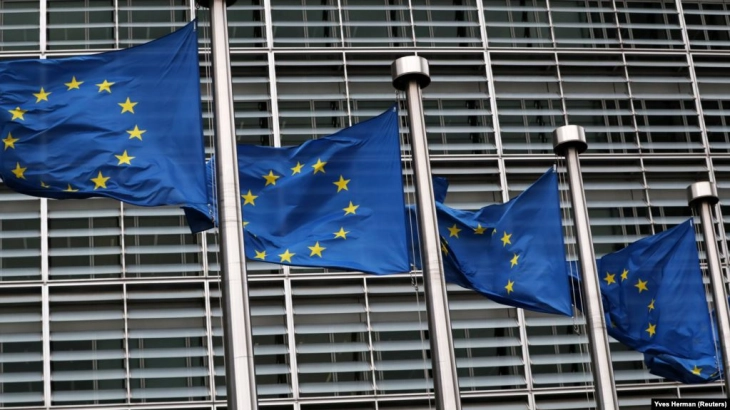EU vote on combustion vehicle sales ban postponed
- A vote on a sales ban for combustion engine vehicles in the European Union from 2035 has been postponed, a spokesman for the Swedish presidency of the EU said on Friday.
- Post By Ivan Kolekevski
- 16:22, 3 March, 2023

Brussels, 3 March 2023 (dpa/MIA) - A vote on a sales ban for combustion engine vehicles in the European Union from 2035 has been postponed, a spokesman for the Swedish presidency of the EU said on Friday.
EU countries "will revert to the issue in due time," he added.
The vote, originally scheduled for Tuesday, was considered a formality as EU countries and the European Parliament had reached consensus on the issue last October.
However, German Transport Minister Volker Wissing, from the business-friendly Free Democrats (FDP) in Germany's coalition government, voiced opposition to the sales ban earlier this week, threatening Berlin would not back the ban.
He argued the European Commission has not yet followed up with a complementary draft bill on how cars and vans running on climate-neutral fuels could still be registered in the EU after 2035.
The promised proposal was part of a deal reached last summer aimed at getting the FDP's support for sales ban.
To approve the sales ban, 15 out of the EU's 27 member countries which together make up at least 65% of the bloc's total population would have to vote in favour of it.
In addition to Germany, countries such as Italy, Poland and Bulgaria recently also voiced opposition to the plans.
Germany is the most populous EU country, while Italy is ranked third and Poland fifth.
Without Germany's backing, a majority representing 65% of the EU's citizens was unlikely, prompting the delay of the vote.
Italian Vice Prime Minister and Transport Minister Matteo Salvini welcomed the delay of the vote on Twitter, calling it a "great signal."
"The voice of millions of Italians has been heard," Salvini from the far-right Lega Party wrote.
In Germany the head of automaker Audi, Markus Duesmann, stressed the need for planning security for the car industry and its multi-billion investments and warned against a reversal of the planned ban, in an interview with Der Spiegel.
Synthetic fuels would not play a major role in the passenger car segment in the medium term and Audi is foreseeing to phase out the internal combustion engine in 2033, he said.
German Finance Minister Christian Lindner, also from the FDP, said newly registered combustion vehicles would be an exception after 2035. Worldwide, however, as this technology would continue to remain important, a car exporter like Germany should retain the expertise needed in this area, he said.
The FDP is the smallest of the three parties that make up Germany's coalition government together with the Social Democrats and the Green Party.
State Secretary for Economic Affairs Sven Giegold, who is a member of the Green Party, however voiced understanding for the FDP's position.
"We have always said as Germany: we support an end to old, conventional combustion engines, but we want a solution outside [this law], for combustion engines that are only powered by sustainable e-fuels," he said on Thursday.
Environment Minister Steffi Lemke, also from the Greens, said Germany should back the sales ban.
Green EU lawmaker Michael Bloss called the delay "an embarrassment for Germany" and called on Chancellor Olaf Scholz to put his foot down and "end the tragedy."
Synthetic fuels are produced by combining hydrogen with carbon dioxide which can be captured from the atmosphere.
These fuels are only considered climate-neutral if the power needed to produce them and their components was generated from renewable sources.
How beneficial or feasible the large-scale deployment of synthetic fuels would be is contested.
Supporters see them as a climate-friendly alternative to fossil fuels.
Critics say synthetic fuels should only be used for unavoidable air and sea traffic, while their use in a large number of vehicles would be a waste of green energy.
The plans to reduce climate-damaging CO2 emissions from new vans and cars by 100% by 2035 - meaning a de-facto sales ban - are part of a larger package to tackle climate change.
The EU wants to reduce its greenhouse gas emissions by at least 55% by 2030 compared to 1990-levels, and to achieve climate neutrality in 2050.







